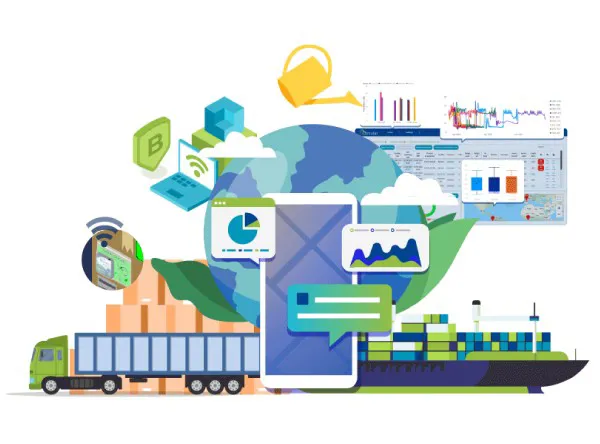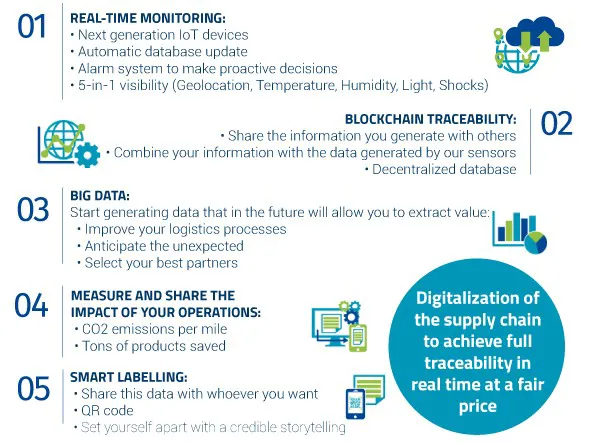
According to estimates, up to a third of all food produced globally is wasted each year - i.e. approximately 1.7 billion tons. This has an economic impact of up to 730,000 million euro per year and 8% of greenhouse gas emissions (GEF). A large part of these losses takes place during the transport and distribution process due to poor management of the cold chain.
The goal of the Spanish company, CLCircular, is to reduce this food waste. This is achieved with real-time monitoring of the logistics chain at a fair price, through a circular economy model. The cargo's data (temperature, humidity, door opening, bumps, and geolocation) is captured during its transport using reusable IoT sensors that upload it to a logistics platform in the cloud in a confidential, secure, and certified manner.
This data allows exporters to make better decisions, achieve full traceability, and optimize logistics processes. This permits them to save time and money while reducing the environmental impact of operations.
This is the first step towards the digital transformation of logistics offered by CLCircular, adding the BlockChain system, Big Data and Business Intelligence analysis, CO₂ impact measurement, and smart labeling:

These solutions allow companies to regain control of their data by enhancing their Big Data, to gain peace of mind adding value to their proposal to differentiate themselves. Blockchain allows improving corporate transparency, smart labeling allows connecting with the end consumer directly through Storytelling, and the emissions calculator allows measuring the positive environmental impact of operations in GEF emissions and tons of product saved.
This allows creating an efficient, transparent, and sustainable supply chain that is capable of facing the great logistical challenges of the present.
For more information:
CLCircular
Sergio Espluga
sergio.espluga@clcircular.com
Miguel Ortiz
miguel.ortiz@clcircular.com
www.clcircular.com
